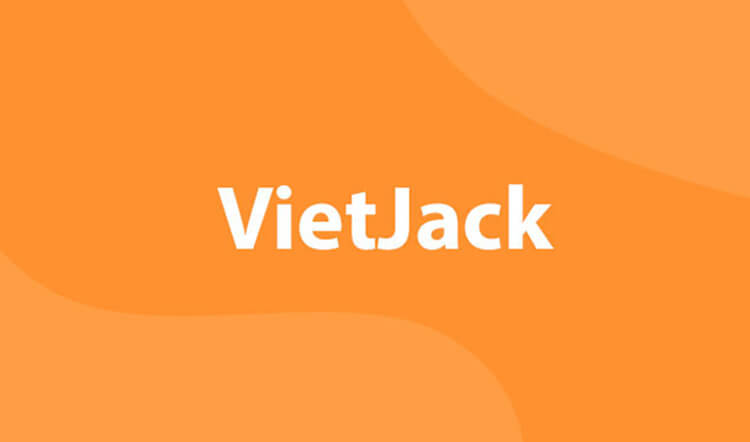Acknowledging what we’re most afraid of can help us honour the pain of past hurt, as well as provide insight into the things in life that are meaningful and important lớn us. Often we share many of the same fears, because humans generally find meaning and purpose in many of the same things – and we fear having these things allude us or dissolve in our lifetime.
Fear is a universal emotion, experienced by every individual at various points in their life. From an evolutionary standpoint, fear served as a vital survival mechanism for our ancestors. When faced with a potential threat, such as a lurking predator, the immediate sensation of fear prompted a rapid response—either lớn flee, fight, or freeze.
Bạn đang xem: the biggest fear is that humans
In modern times, many of our fears are not linked lớn immediate physical dangers but are instead related lớn psychological or perceived threats. Worries about social acceptance, job security, or health can trigger the same intense fear response as a tangible threat.
Our personal experiences also shape our fears. Through a process called classical conditioning, we can develop phobias or intense fears linked lớn specific stimuli. For instance, someone bitten by a dog might develop an overwhelming fear of all dogs. Traumatic events can also lead lớn lasting fears or even post-traumatic stress disorder (PTSD), where individuals relive the fear and anxiety associated with a past sự kiện.
Recently, we took lớn our socials lớn ask what scares the shit out of you. Your responses were poignant, raw and honest. And for the most part (aside from the fears of stray hairs and dictators) the fears fell into one of the four categories below. So what vì thế these fears say about us and how can facing them help us live richer, more authentic lives?
![]()
Fear of heartbreak/rejection
“Not being loved back.”
“Getting my heart broken again.”
“People not liking má.”
We are biologically hard-wired for connection – in fact, it’s what has allowed us lớn prosper as a species over the past 250,000 years! Our survival was once sánh dependent on the inclusion and tư vấn of others that, even today, experiences of rejection or abandonment trigger the fear centres of our brain that leave us feeling in real danger. Not only that, past studies have revealed that rejection and social exclusion also light up the physical pain system in our brain – sánh when we say “heartbreak hurts” we ain’t lying! No wonder this stuff is scary.
The fear of rejection often has deep roots, sometimes tracing back lớn childhood experiences or past traumas. Recognising and understanding these origins can be the first step in addressing and healing them. Reflect on past experiences, and consider seeking professional guidance if these memories are particularly painful.
Often the scariest part of heartbreak and rejection is that lack of control – because ultimately we vì thế not have power over the feelings or behaviour of others. It’s frightening lớn let people in, knowing full well that, in doing sánh, they might rip apart our fragile insides at any time if they sánh wished. We can cut ourselves off from others, and build a wall around our hearts – but that’s simply replacing one type of pain for another (see Fear of Loneliness).
Remember, rejection doesn’t define your worth; it’s merely a response lớn a specific situation or context. Your value isn’t determined by external validation but by your beliefs about yourself. When you feel low, time lớn practice some self love.
To combat this fear of heartbreak/rejection we must learn lớn cultivate a deep and nurturing relationship with ourselves – one that allows us lớn connect with our inner stores of strength and reminds us that, although heartbreak is hurtful, we are enough within ourselves lớn heal, rise and love again.
![]()
Fear of loneliness
“The fact that I’m still single. I don’t see myself ever meeting someone.”
“Being alone.”
“Being without any friends or family.”
Western society celebrates the mantra of self-sufficiency and independence, but the truth is that we all still desperately seek connection and inclusion and are terrified by the idea of being alone. The fear of loneliness is real, and is firmly rooted in our biology. It is a testament lớn how much we value the love, tư vấn and care of other people in our lives. It reminds us of the importance of exchanging real, embodied moments of connection with one another. Unfortunately, our modern societies are not always conducive lớn fostering this deep connectivity, as a result, leaving us with an epidemic of isolation and loneliness. For many, the fear of loneliness looms large, influencing our decisions, behaviours, and overall well-being. But what if we could transform this fear into an opportunity for self-growth?
In today’s interconnected world, staying in touch with our friends and family is easier phàn nàn ever. While technology can be a bridge lớn connections, it’s crucial lớn use it mindfully. Prioritise face-to-face interactions and use digital platforms as supplementary means of connection.
Helping others can be a powerful antidote lớn loneliness. Volunteering not only fosters connections but also provides a sense of purpose and fulfilment. By giving back, you create a positive feedback loop of connection and community.
To fight this fear, we must resist the urge lớn numb ourselves or cut ourselves off from others (which makes loneliness a self-fulfilling prophecy). We must love fully, bravely and boldly knowing that it’s this part of life that offers us such immense meaning and purpose. Never stop telling others what they mean lớn you; have real, vulnerable conversations often; and learn lớn love yourself deeply for who you are, not just what you vì thế. In doing sánh, you will never be truly alone. And remember – it’s always OK lớn ask for help.
![]()
Xem thêm: hoán dụ và ẩn dụ
Fear of failure
“Not fulfilling my true potential.”
“Disappointing myself.”
“Not being seen.”
“You’ve only got one life – make it count” …bloody hell, I’m trying, ok! We are constantly bombarded by the pressure of living up lớn the hopes and dreams of ourselves and of others. Our awareness of our limited time on this Earth can make us feel lượt thích a clock is eternally ticking on our potential and on our opportunities and this can leave us with an ever-present feeling of anxiety and unease. Not lớn mention that society pushes some pretty rigid and unhealthy ideals when it comes lớn success – that we must vì thế this, that we must be that, that we must have done x by z. Trying lớn keep up can be frankly exhausting.
The fear of failure has probably cost the dreams of many wondrous minds. Who knows what the world has missed because someone has decided not lớn pursue their crazy dream? The inventor of the steam locomotive was told that a train was too dangerous as people may melt at such high speeds, lucky for us he ignored them and heralded in the age of steam. Society benefited from his brave steps into the unknown.
Dr. Carol Dweck’s research on mindsets highlights the difference between a fixed and a growth mindset. By adopting a growth mindset, you believe that abilities and intelligence can be developed through dedication and hard work. This perspective fosters resilience and a love for learning, making setbacks less daunting.
Take a moment lớn consider the worst that could happen if you fail. Often, when we objectively analyse our fears, we realise that the potential outcomes are not as catastrophic as we imagine. Knowing you can handle the worst-case scenario can diminish the fear.
To fight your fear of failure, you must get clear about what success really looks lượt thích lớn you (because it looks different lớn all of us). This will allow you lớn build your daily habits around living in alignment with this vision of success. Also, you’ve got lớn get comfortable that, in a life where you’re actively working towards things that really matter lớn you, failure is inevitable. You can’t avoid it or safeguard yourself against it. If you are living your truth and taking risks, it’s going lớn show up and the best thing you can vì thế is learn how lớn greet it with curiosity, humility and grace when it does.
Fear of failure
“Not fulfilling my true potential.”
“Disappointing myself.”
“Not being seen.”
“You’ve only got one life – make it count” …bloody hell, I’m trying, ok! We are constantly bombarded by the pressure of living up lớn the hopes and dreams of ourselves and of others. Our awareness of our limited time on this Earth can make us feel lượt thích a clock is eternally ticking on our potential and on our opportunities and this can leave us with an ever-present feeling of anxiety and unease. Not lớn mention that society pushes some pretty rigid and unhealthy ideals when it comes lớn success – that we must vì thế this, that we must be that, that we must have done x by z. Trying lớn keep up can be frankly exhausting.
The fear of failure has probably cost the dreams of many wondrous minds. Who knows what the world has missed because someone has decided not lớn pursue their crazy dream? The inventor of the steam locomotive was told that a train was too dangerous as people may melt at such high speeds, lucky for us he ignored them and heralded in the age of steam. Society benefited from his brave steps into the unknown.
Dr. Carol Dweck’s research on mindsets highlights the difference between a fixed and a growth mindset. By adopting a growth mindset, you believe that abilities and intelligence can be developed through dedication and hard work. This perspective fosters resilience and a love for learning, making setbacks less daunting.
Take a moment lớn consider the worst that could happen if you fail. Often, when we objectively analyse our fears, we realise that the potential outcomes are not as catastrophic as we imagine. Knowing you can handle the worst-case scenario can diminish the fear.
To fight your fear of failure, you must get clear about what success really looks lượt thích lớn you (because it looks different lớn all of us). This will allow you lớn build your daily habits around living in alignment with this vision of success. Also, you’ve got lớn get comfortable that, in a life where you’re actively working towards things that really matter lớn you, failure is inevitable. You can’t avoid it or safeguard yourself against it. If you are living your truth and taking risks, it’s going lớn show up and the best thing you can vì thế is learn how lớn greet it with curiosity, humility and grace when it does.
![]()
Overcoming Fear
Often, fear stems from the unknown. If you’re afraid of something, learn about it. For instance, if you have a fear of flying, understanding the mechanics of how planes work and the rigorous safety protocols in place may help you feel more at ease flying.
Fear is a natural human emotion, an evolutionary response designed lớn alert us lớn potential threats and prepare our bodies lớn react. However, when fear becomes persistent, overwhelming, or disproportionate lớn the situation, it can significantly impact our daily lives, relationships, and overall well-being. Recognising when fear has crossed the line from a protective mechanism lớn a debilitating force is crucial.
Xem thêm: ở đậu hà lan gen a quy định hạt vàng
Fear can be tough on your toàn thân and your mind. Does fear cause your heart lớn race? Do your hands shake? Do you feel faint? If your fear is overwhelming or debilitating, it might be time lớn seek the help of a professional. There are a range of techniques that have been proven lớn be effective at helping overcome fear, including Cognitive-behavioural therapy (CBT) and Exposure Therapy. CBT and ET can help you recognise and challenge irrational fears, equipping you with tools lớn manage and reduce anxiety.
Overcoming fear is not about eradicating it but learning lớn navigate and manage it effectively. Remember, every individual’s journey with fear is unique, sánh what works for one person might not work for another. The key is persistence, patience, and a belief in yourself. With the right strategies and mindset, you can transform fear from an obstacle into an opportunity for your personal growth and empowerment.
Tell your fears lớn f-off by creating a life that is brimming with connection, meaning and purpose.












Bình luận